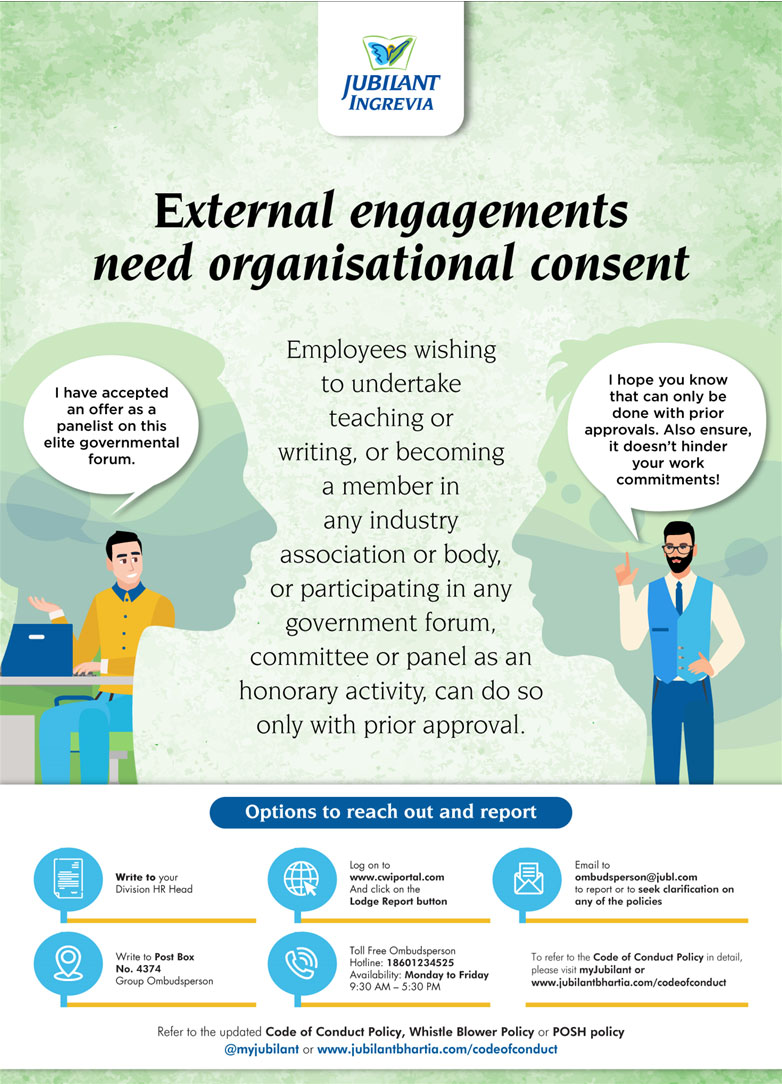External Engagements Need Organisational Consent
External engagements, such as speaking at seminars/conferences or participating at public forums, interview panels, can be a valuable opportunity for professionals to represent their organisation and share their expertise with a wider audience. However, it is important for individuals to obtain consent from the organisation before engaging in any external activities.
Obtaining consent ensures that the individual’s external involvements align with the organisation’s values, objectives and goals. It also ensures that the organisation is aware of the individual’s commitments and can plan accordingly. In addition, obtaining consent can help prevent any conflicts of interest or reputational damage. If an individual engages in external activities without consent, they may inadvertently share confidential information or make statements that do not align with the organisation’s values. This can lead to unfavorable consequences for both the employee and the organisation.
At Jubilant, our Code of Conduct (COC) provides us with guidance on external engagements. It says that, an employee wishing to undertake teaching or writing, or becoming a member in any industry association or body, or participating in any government forum, committee or panel as an honorary activity, or participating in any social organisation, can do so only with prior approval, provided the employee ensures that there is no interference with their work schedule and there is no conflict of interest or intellectual property protection issue.
The Code of Conduct policy also provides us with guidelines/process to seek approval/consent on external engagements of employees. One can access these in the COC policy document point 5.2 (g-v)]
In conclusion, obtaining consent from an organisation before engaging in any external activities is essential for ensuring alignment with the company’s values and goals, preventing conflicts of interests and protecting the reputation. Individuals/employees should review the engagement from an overall perspective that should serve a larger purpose.
Regular communication and awareness on our Code of Conduct policy and its pillars is spread through emailers, workshops, posters and other collaterals.


